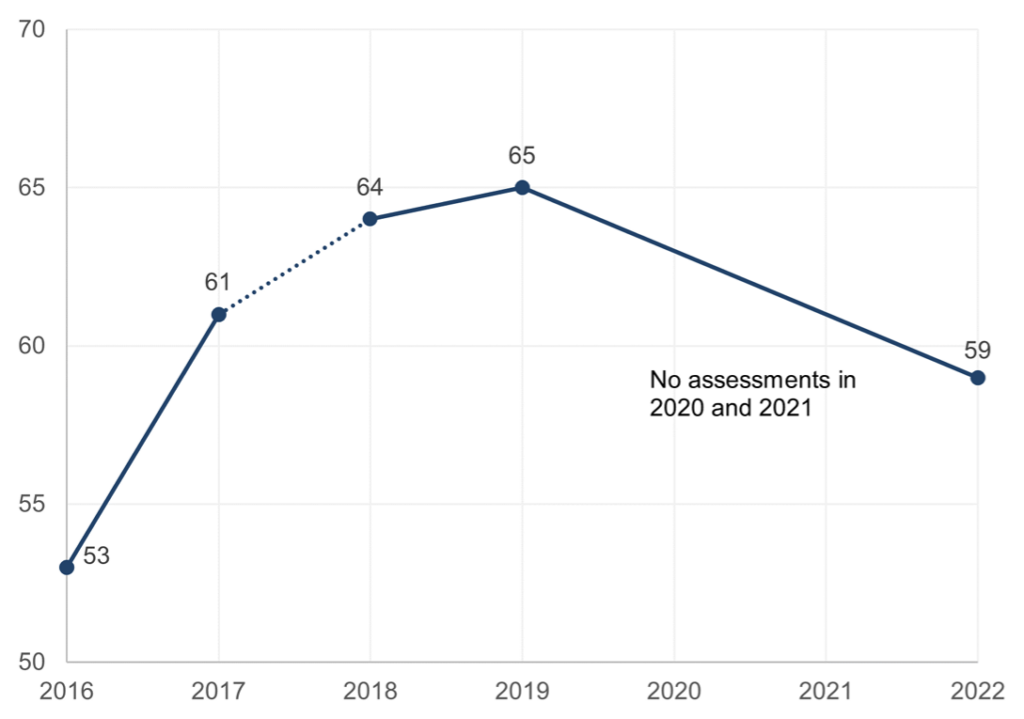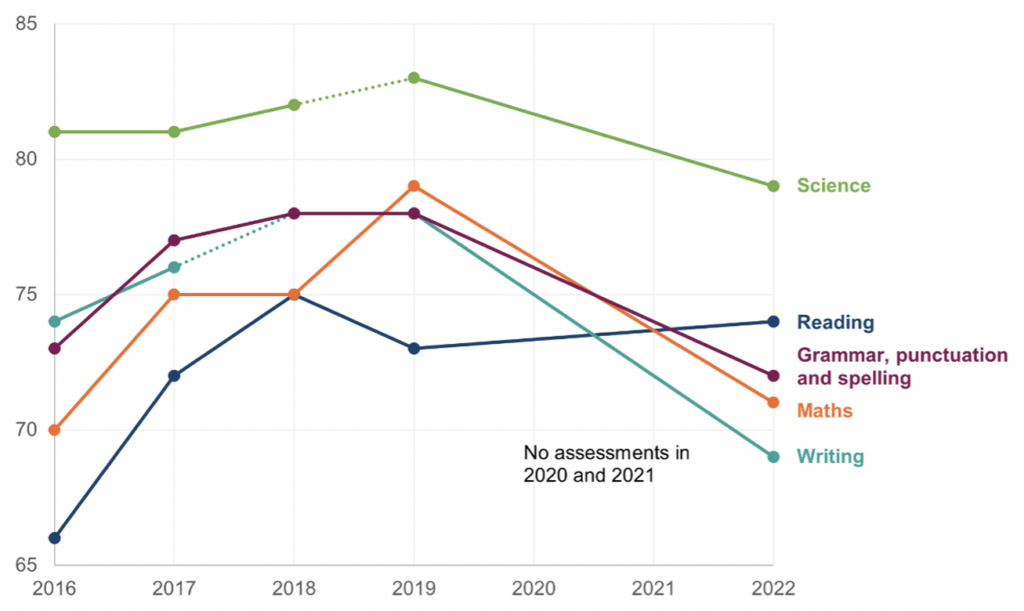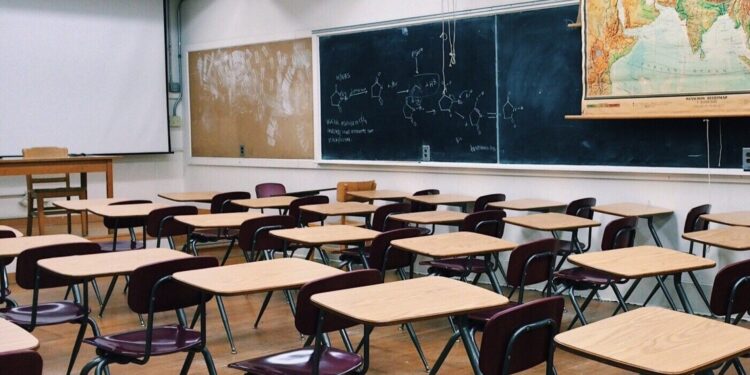There’s no shortage of evidence that the switch to remote learning harmed children’s education. In England, schools (either primary, secondary or both) were closed in at least part of the country for 224 days during the pandemic. Taking the summer holidays into account, that’s almost an entire school year.
Did this unprecedented ‘intervention’ leave a mark on English children’s attainment? It certainly appears so, looking at new statistics published by the Department for Education.
English children’s attainment is assessed at the end of year 6, when they’re 11 years old. The assessment comprises five elements: reading test; maths test; grammar, punctuation and spelling test; writing teacher assessment; and science teacher assessment. No assessment took place in either 2020 or 2021. The summer of 2022 was therefore the first time pupils were assessed since before the pandemic.
The first chart below shows the percentage of students meeting the expected standard in reading, writing and maths. As you can see, there was a 6 percentage point decline from 2019 to 2022 – following an 8 percentage point rise over the preceding five years (though this may be due to grade inflation).

The next chart shows the percentage of students meeting the expected standard in each of the five elements mentioned above. Note: the dashed lines on both charts indicate changes in the assessment frameworks.

In reading, there was a 1 percentage point rise from 2019 to 2022. But in all other elements, there was a decline. The percentage of students meeting the expected standard fell by 9 percentage points in writing; 8 percentage points in maths; 6 percentage points in grammar; punctuation and spelling; and 4 percentage points in science.
These are substantial drops. And they’re likely to reflect real declines in performance, since educators generally have an incentive to overstate, rather than understate, pupil attainment – which usually results in grade inflation.
Of course, without additional information, we can’t know how much of these declines are due to school closures themselves – as opposed to other aspects of the pandemic, like illness and stress. But based on the scholarly literature to date, it’s a good bet that most of them are.
With the record rise in childhood obesity, as well as marked declines in pupil attainment, English children have had a tough couple of years.












To join in with the discussion please make a donation to The Daily Sceptic.
Profanity and abuse will be removed and may lead to a permanent ban.
There is no evidence that remote learning caused any problem with children’s education attainment because it was so sparcely used. One may suppose that a complete lack of face to face teaching or at least face to face care would hve an adverse effect over such a lengthy period, for which thank you blob and thank you teaching unions.
My son opted out of remote ‘learning’ altogether; I don’t think he attended a single remote ‘lesson’, and subsequently struggled with the topics that had been ‘covered’ during these periods in his GCSEs last month.
I had a full ‘teaching’ timetable of remote ‘lessons’ which consisted of me in a room in my house, effectively talking to myself whilst looking at a screen made up of images of the students apparently ‘in attendance.’
If this was a foretaste of The Fourth Industrial Revolution™️, then I can state with confidence that humanity’s glory days are over.
Your son knew it was all BS and just avoided it, lest he be further infected by boring morons
This area of the chart stood out for me. A trend shared by adults too.
Hmmmm, indeed and good observation, although I would put forth that the adult decline in the fundamentals of applied logic and critical thinking would be shaped more akin to a cliff edge than a toboggan slope.
Just my 2 pence ….
A gentle decline there was not. Rather, a bonfire of sensemaking!
Assuming these standardised test are a good measure of useful learning, then it seems like a problem.
But it’s a big assumption. And kids might have learned other things during that time.
I can imagine those growing up in “sceptical” households have had an intensive period of exposure to critical thinking of the sort they are unlikely to have encountered in school.
For sure. And I reckon this would paradoxically have been more valuable to the children of working class households, wherein the period shattered the illusion that the authorities cared about children’s education or welfare.
The children of middle class families, with their banana bread, Pelotons, rainbows and Thursday clapping, won’t have learned anything particularly useful except mindless compliance.
Absolutely. The last two and a half years have been been a most wonderful “learning moment” of which this mama and papa bear have taken full advantage.
I suspect it’s not so much the lack of attendance, and more to do with children knowing “something is rotten in the state of Denmark”.
It’s very distracting.
Add in the complete loss of respect for all or most authority figures and their obviously stupid rules, particularly in the school environment, and it’s a perfect storm. Kids have much better BS sensors than adults.
In Sept 2020, it was clear to anyone involved with children that the first lockdown had set children’s learning back significantly. The second lockdown just compounded the damage. Yes, more children were designated ‘key worker’ children and physically in (primary) school, but they weren’t allowed to be taught differently to those at home so both lots were subjected to this awful woman on YouTube attempting to inspire them to write. If you are a bright child with involved parents you will likely have maintained your level of learning, but those needing more help have essentially been doomed.
the year 2 Sats would be the most revealing, anyone know if these were taken?